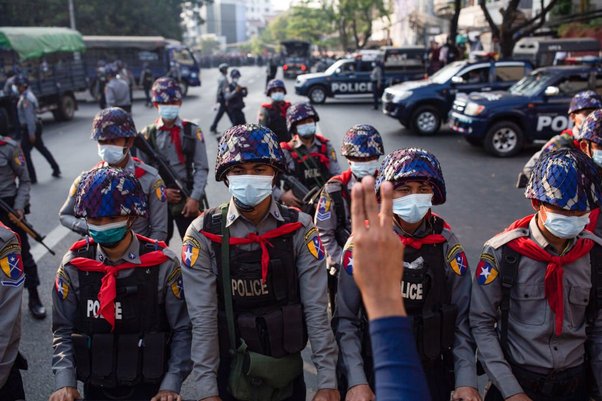We welcome today’s news that the United States House of Representatives has passed the BURMA Act of 2021
This bill, first introduced last October, is the result of months of negotiations between Republicans and Democrats in the House. The bill’s provisions bring together the four primary threads of US policy towards Myanmar: targeting military revenues through sanctions, supporting the pro-democracy movement, authorizing humanitarian assistance, and pursuing accountability for the military’s atrocities.
“This bill is a big step forward in the US response to the coup in Myanmar,” said Hanna Hindstrom, Senior Myanmar Campaigner Global Witness. “The fact that the House could come together and pass this bill in a bipartisan manner demonstrates that the situation in Myanmar remains firmly on the US agenda.”
The BURMA Act’s key elements include authorizing over $450 million in humanitarian aid and support for the pro-democracy movement in Myanmar over five years, expanding sanctions authorisations, and creating a coordinator position to oversee Myanmar policy in the US. The bill also calls for the US to support international justice mechanisms in response to the military’s targeted campaign against the Rohingya people in 2017, which the the US recognized last month as genocide.
“The bill provides desperately needed aid to the people of Myanmar while also strengthening the sanctions tools available to the US,” added Hindstrom. “The US should continue to use these tools to place pressure on Myanmar’s military regime, especially by targeting Myanmar’s offshore gas industry, which is the largest source of revenue for the junta.”
To this end, the bill calls for a comprehensive report on how sanctions on Myanmar’s state-owned oil and gas company, MOGE, would support US interests and the people of Myanmar. This will place additional pressure on President Biden’s administration to follow the EU’s lead and finally sanction MOGE. The US has so far resisted calls to impose sanctions on Myanmar’s gas industry from the pro-democracy movement in Myanmar, including hundreds of civil society organizations and the Myanmar National Unity Government. Even Total, the largest oil and gas multinational operating in Myanmar, began calling for the industry to be sanctioned in January before announcing that it would begin its withdrawal from the country.
The passage of the BURMA Act marks important progress, but additional hurdles remain. The Senate must also pass the BURMA Act - a process currently being held up by Senator Todd Young of Indiana.
“We call on the Senate to move quickly to resolve its differences and move this bill forward,” said Hindstrom. “The future of Myanmar is on the line and the time for gamesmanship is over.”


